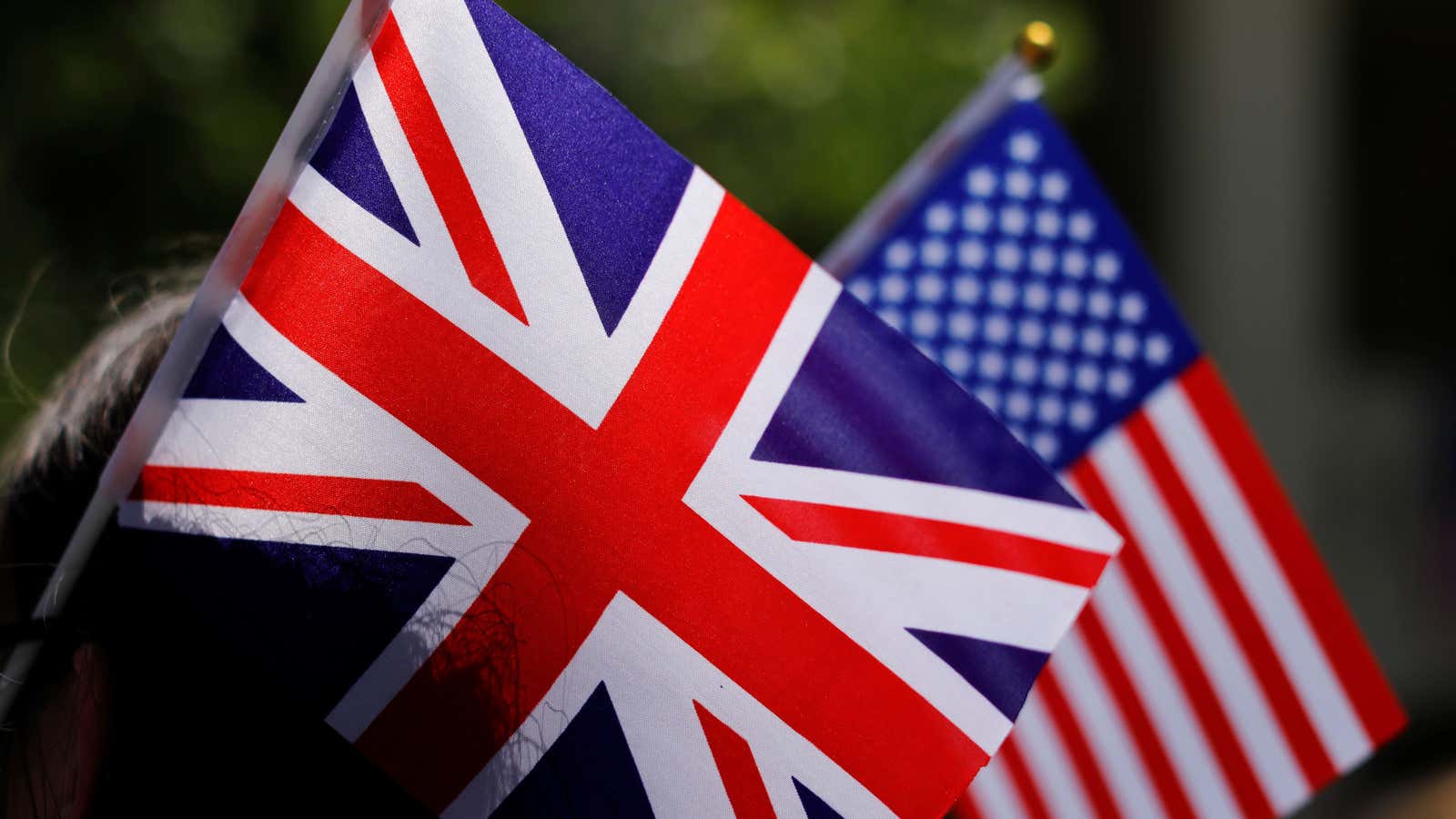When it comes to the English language, Brits and Americans agree on one thing—the meaning of mediocre. That is, when asked to quantify the word “mediocre” with a value on a numeric scale from good to bad, residents of each group give it nearly the same score.
To determine the degree of positivity or negativity associated with various words, polling company YouGov asked English speakers on both sides of the pond to rate words on a scale from zero (“very negative”) to ten (“very positive”). That allowed researcher to bind quantitative measurements to the very qualitative terms behind positivity.
There are some interesting differences between the Brit and Americans. We’ll get to those—but first, let’s see where you fit in.
Rate these words—a selection of those used in the study—to see with which nation your word-choice most aligns.
While some words are similarly rated (like “mediocre,” “quite bad,” and “awesome”), others can differ by a full rank. The greatest difference was “abysmal.” For the Brits, it was the most negatively rated term (1.21). Americans, ranked it 2.55. Instead, “very bad” (1.85) took that lowest spot for them.
While neither group averaged a ranking below one or much above nine, the greatest spread of expression came from the Brits. On average, negative words were rated more negatively by Brits, than by Americans. The British also ranked the positive words more positively.
The highest praise from both groups was ‘perfect’, with an average ranking of 9.16 for Brits and 8.75 for Americans.
